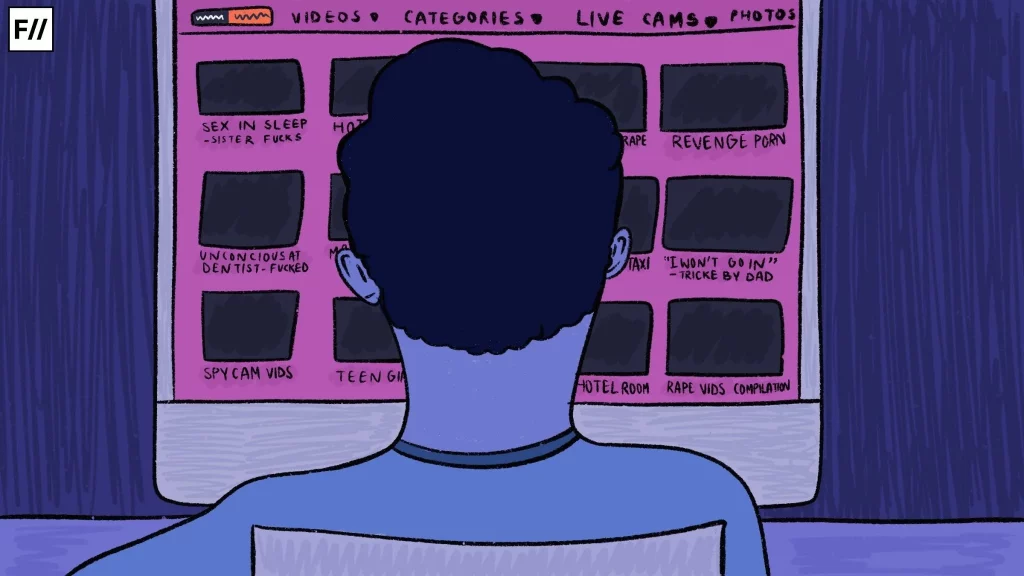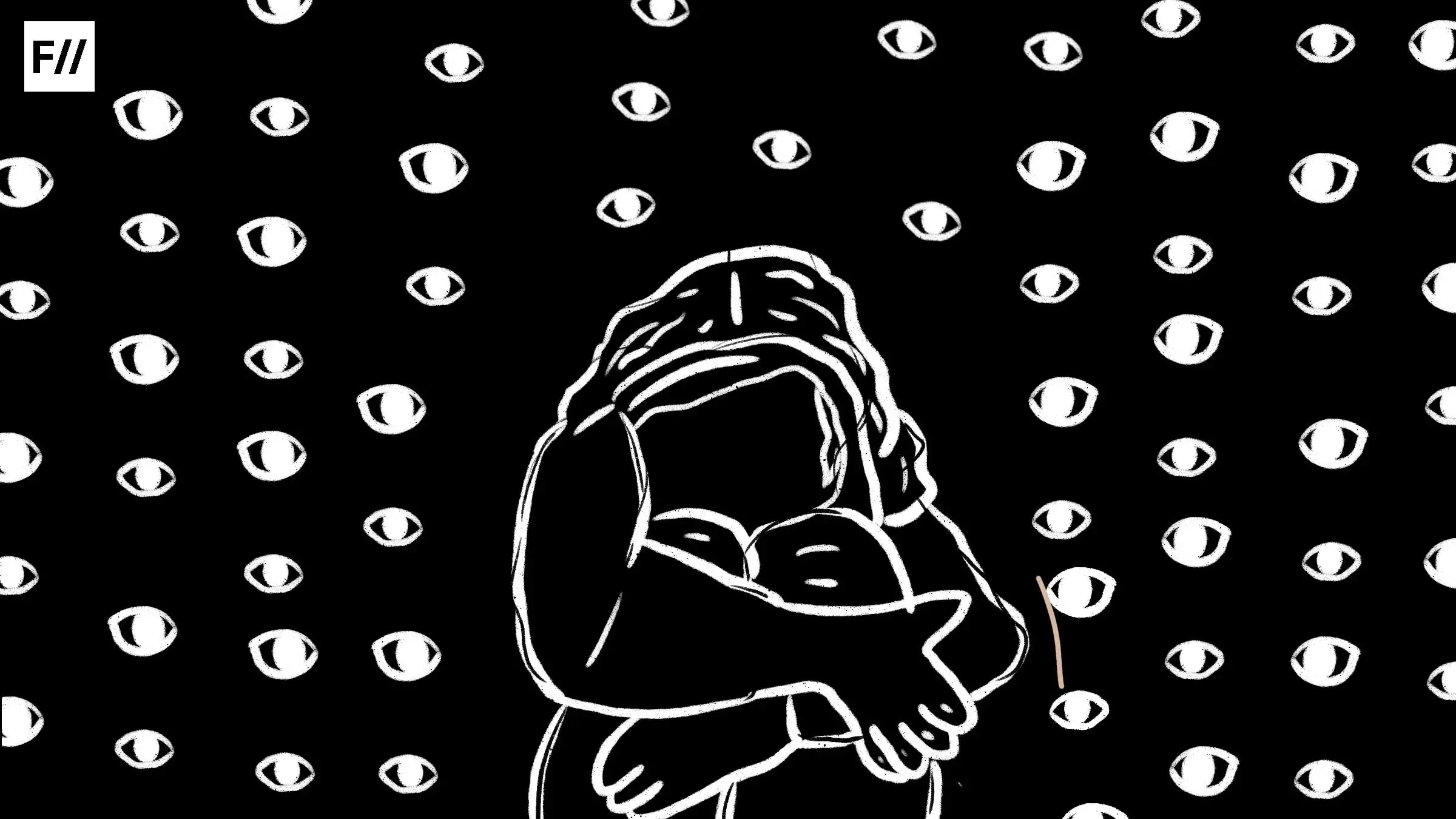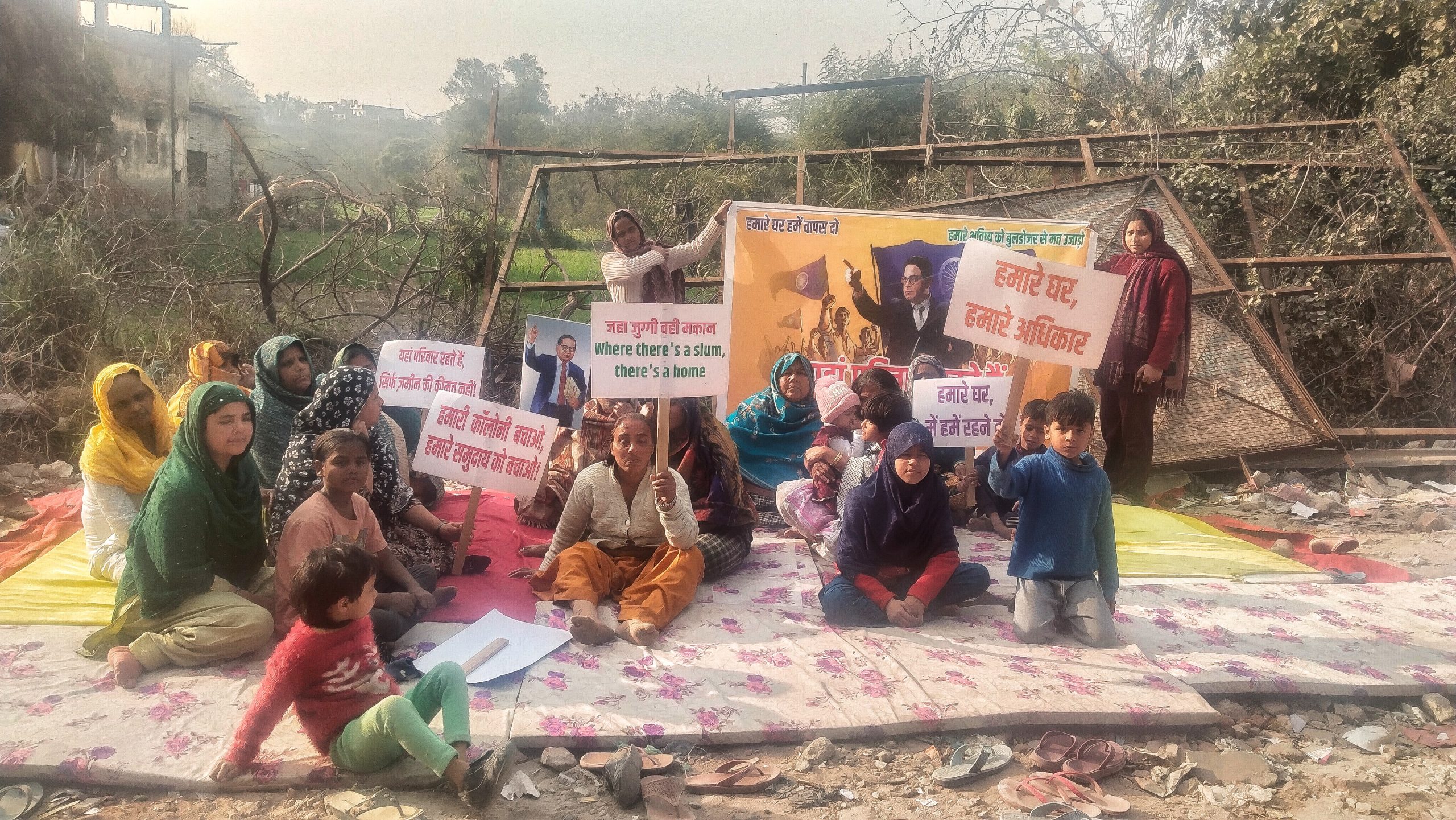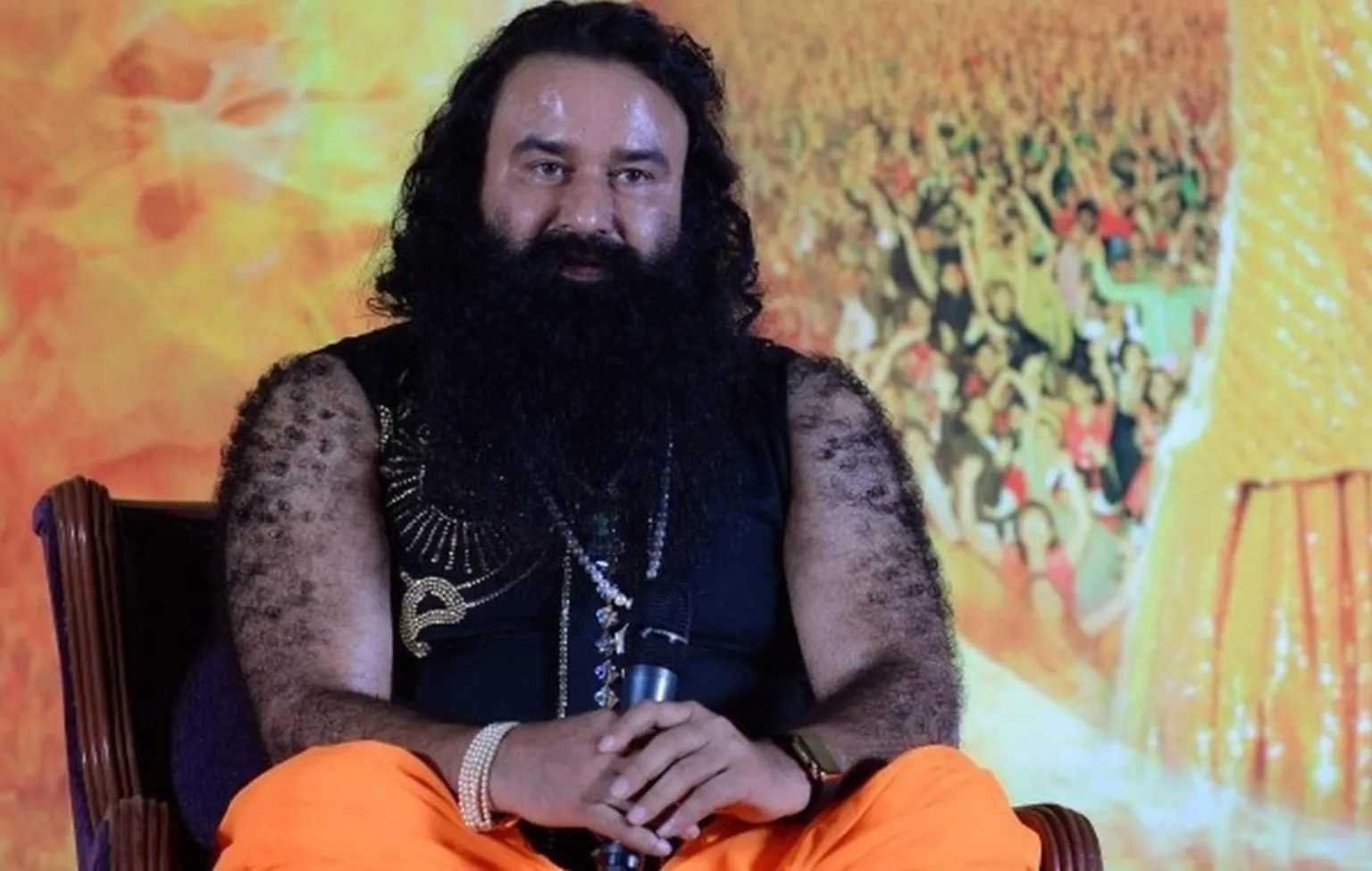A normal day at Payal Maternity Hospital in Rajkot, Gujarat, turned into a shocking incident when an internal video from the gynaecology ward began circulating on international porn websites. Following the investigation, it was revealed that the hospital’s CCTV system was hacked, and footage from the examination rooms of gynaecologists was leaked and shared online on adult websites. This is not a standalone hospital crime case; it puts other breaches of medical spaces into the spotlight, exposing a dark web of a national cybercrime network.
Rajkot hospital footage leaked: A technical error or human error?
According to reports, the cause of the breach is described as simple, weak and default login credentials, as the password was ‘admin123’. A chain of automated tools has turned a poorly secured CCTV system into a criminal marketplace. But is that all really a technical lapse? Beneath this violation lies a significant danger, i.e., the sexualisation of pregnancy and childbirth. The place where women are the most vulnerable, especially when in labour, mid-examination or postpartum, has turned into a visual commodity for buyers on the internet and adult websites.
According to Dr Shubhkarman Kahlon, there is no place for a camera inside an examination room. “CCTV cameras are meant for OPD safety, not for capturing any clinical interactions. We urgently need a stricter legal framework on data protection with explicit consent, so patients are aware of why they’re being recorded. For any safety reason, the answer is not surveillance but having an additional staff member in the examination, if necessary,” she states.

This is simply not a privacy breach but a horrid assault on dignity and trust at a place that should be one of the safest places in a woman’s life. According to a study, data insecurity in healthcare systems is no longer ‘an IT failure but a human rights issue’. Similarly, in a report by the WHO on patient safety, it calls digital privacy a foundational pillar of safe care and urges every country to treat breaches as not only technical failures but also clinical failures.
The diminishing trust in the healthcare system
A 2025 analysis highlighted that several small and mid-sized hospitals lack cybersecurity and cyber audit protocols, and there are many that continue to use outdated CCTV systems that expose sensitive footage online. The India Cyber Threat Report 2025 reveals that the healthcare sector has over 21.82% of cyberattacks, making it one of the most targeted and vulnerable industries in India.
According to a study, data insecurity in healthcare systems is no longer ‘an IT failure but a human rights issue’. Similarly, in a report by the WHO on patient safety, it calls digital privacy a foundational pillar of safe care and urges every country to treat breaches as not only technical failures but also clinical failures.
Divija Bhasin, a psychotherapist and content creator, believes shame and guilt around women’s bodies are so deeply ingrained due to patriarchal conditioning that such news can actually stop women from getting the medical help they need. “In such cases, they are forced to choose between their “izzat” and actual medical intervention. It can create anxiety in an already stressful medical situation where women have to now worry about psychological harm from potentially getting their videos leaked on top of the stress from medical procedures they may be visiting the institutions for,” she emphasised.
Kaushik Bhattacharya, Neela Bhattacharya and Surajit Bhattacharya write in the research paper that ‘Gender-based violence in Indian hospitals against female patients is an under-recognised but critical issue that undermines the principles of equitable healthcare. The patients encounter violence in various forms, namely neglect, inappropriate physical contact, discriminatory attitudes, and breaches of confidentiality. Women from marginalised communities (lower socio-economic or minority groups) are particularly vulnerable. Contributing factors include insufficient privacy protocols, overburdened healthcare facilities, and inadequate staff training on gender sensitivity and power dynamics, all of which particularly disadvantage female patients. Under-reporting is one of the major obstacles, as many women do not register complaints because of stigma and fear. The consequences of this are profound, leading to psychological trauma, diminishing trust in healthcare systems, or delaying or avoiding medical care.’
Unsafe hospitals and the play of the algorithm
Technology, a place that was supposed to be a safe space for women, has become a place of exploitation where female bodies are exposed without any consent. Cyberviolence against women and girl children is one of the fastest-growing forms of gendered violence across the world, warns UNRIC. In India, women own fewer mobile phones compared to men. However, digital abuse cuts across everything – social identity, location, income and age – and largely targets women. When women come forward to report, law enforcement response remains the same, and police often advise the victims to either ‘block’ or ‘ignore’ the abusers instead of filing any complaints.
An article by Glamour UK reveals how major tech companies are using AI tools to rate photos and videos on social media as racy and sexual simply because they feature a pregnant belly. In a report by The Guardian that claims there is no standard for AI, as it continues to objectify women’s bodies. Images posted on social media are analysed by artificial intelligence (AI) algorithms that decide what to amplify and what to suppress. Many of these algorithms have a gender bias and may have been censoring and suppressing the reach of countless photos featuring women’s bodies. Abusive sexual content, especially pregnancy and childbirth, is drastically amplified by algorithms, highlighting that victims are immensely out of control of their images while abusers continue to flourish without any consequences. “Once any leaked video, no matter the source, enters the online ecosystem, AI tools on adult platforms push it to hundreds of people. There is no knowledge provided to the algorithm about consensual or non-consensual video; it only optimises content for its virality and therefore turns a breach into digital violence,” says an anonymous cybersecurity expert.
The leaked videos from the Rajkot hospital breach were also monetised through commercial exploitation. Reportedly, the videos were uploaded publicly on international pornographic platforms for buyers, while full-length videos were sold encrypted on Telegram and other social media platforms with prices ranging from INR 700 to INR 4000 depending on the content of the clips. According to cybercrime officials, selling stolen footage from hospitals, schools and homes as sexual content is a growing trend in the digital landscape that showcases how technological failure and gender-based violence are deeply related.
Is the law helping anyway?
Reportedly, the current legal framework of India relies on outdated laws that fail to recognise the digital violence, especially those of deepfakes and leaked visual abuse, one of the reasons why women’s digital safety is still a matter of concern. There are IT Acts that are punishable; however, India still lacks a dedicated law to address the recordings and images taken in healthcare fields, neither informing the patients nor taking consent from them.
Once any leaked video, no matter the source, enters the online ecosystem, AI tools on adult platforms push it to hundreds of people. There is no knowledge provided to the algorithm about consensual or non-consensual video; it only optimises content for its virality and therefore turns a breach into digital violence.
“It is a complex issue, as medical practitioners need the footage for understanding how the body works and for furthering the development of women’s health. At the same time, female patients would not understand why their bodies need to be recorded. While it is understandable why it is tricky to take consent in such a situation, it is still important to ensure you have the patient’s consent. It is imperative to keep the footage anonymous and make sure the patient is given this information in advance. Taking footage without permission should be a crime, if it isn’t already, because in the end, if the footage is leaked, the patients have to bear the societal stigma and consequences of it,” states Divija.
According to Live Law and Bar & Bench, this legal gap can work in favour of hospitals as they can claim a legitimate need for surveillance, while victims will struggle to assert their rights to privacy in an environment meant for safety and care. India often treats digital sexual offence as ‘cyber obscenity’ instead of treating it as a high-priority issue and violation of privacy, according to NLU Assam.
Over 60% of Indian women who are professionals in the public spaces, such as journalists, activists and creators, have faced online abuse, and less than 10% of them report these incidents due to no support from institutions, police & legal. These echo the silence that surrounds the violations of privacy, like the Rajkot hospital footage, where victims were unwillingly forced to be silent and endure societal stigma while institutions label it lightly as another ‘digital crime’.
The real question is not who hacked the system? But why were such vulnerable systems left so exposed technologically and legally to the public? It is a collective failure of the system because hospitals treat digital security as a second thought, and policymakers are slow to act. A breach in maternal care privacy has turned into one of the most disturbing gender-violence scandals in the country.
“The reality is that male violence, especially against women, is done to remain in power. There is a misconception that it is done for sexual pleasure. Sexual crimes such as this one are actually a power issue and not a sexual issue. We need to start naming the real problem – men wanting to stay in power and subjugate women. It is a difficult thing to admit, but it is vital to do so; otherwise, these crimes will continue to happen,” asserts Divija.
Pregnancy and childbirth have always been considered moments of strength and intimacy, but today, they are warped into commodities because of the dark world of technology. The sexualisation of childbirth is being distributed everywhere through hacking, AI-enhanced videos and porn markets. This is not about a weak digital security system but about systemic negligence and a digital landscape rewarding exploitation and gender-based violence.





